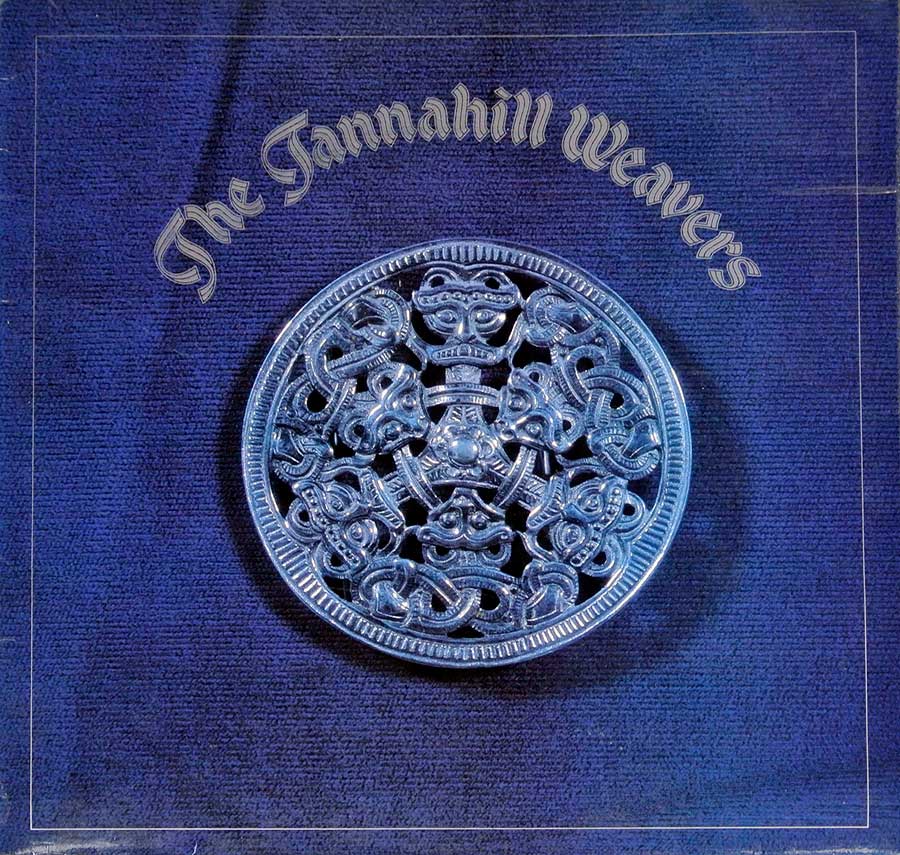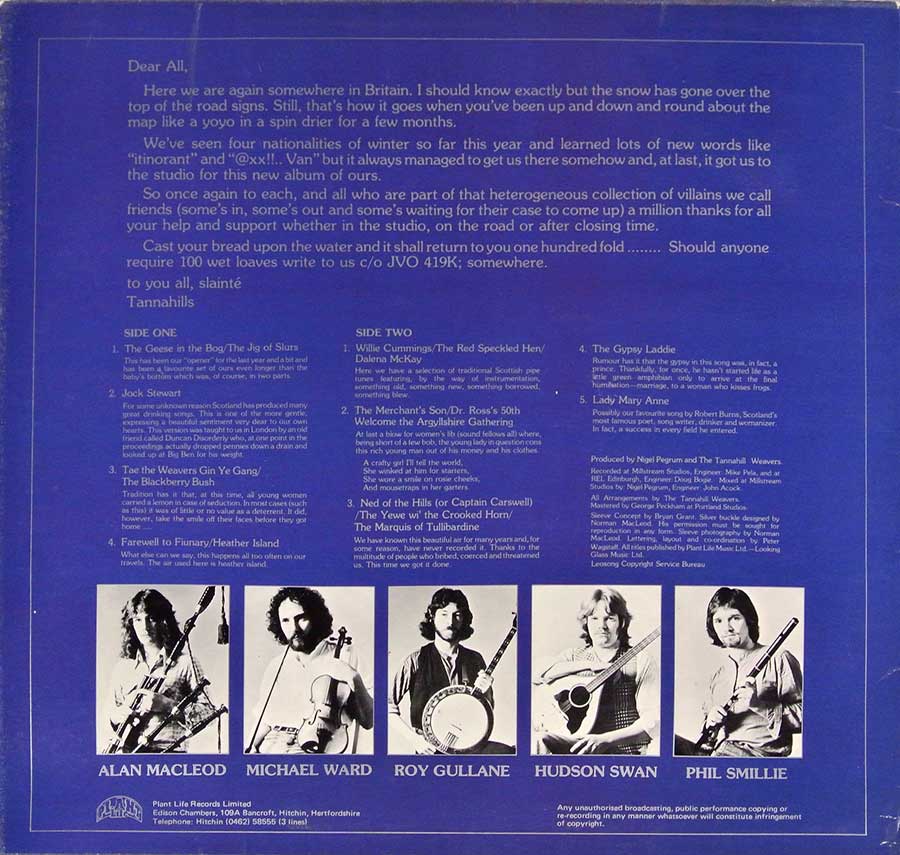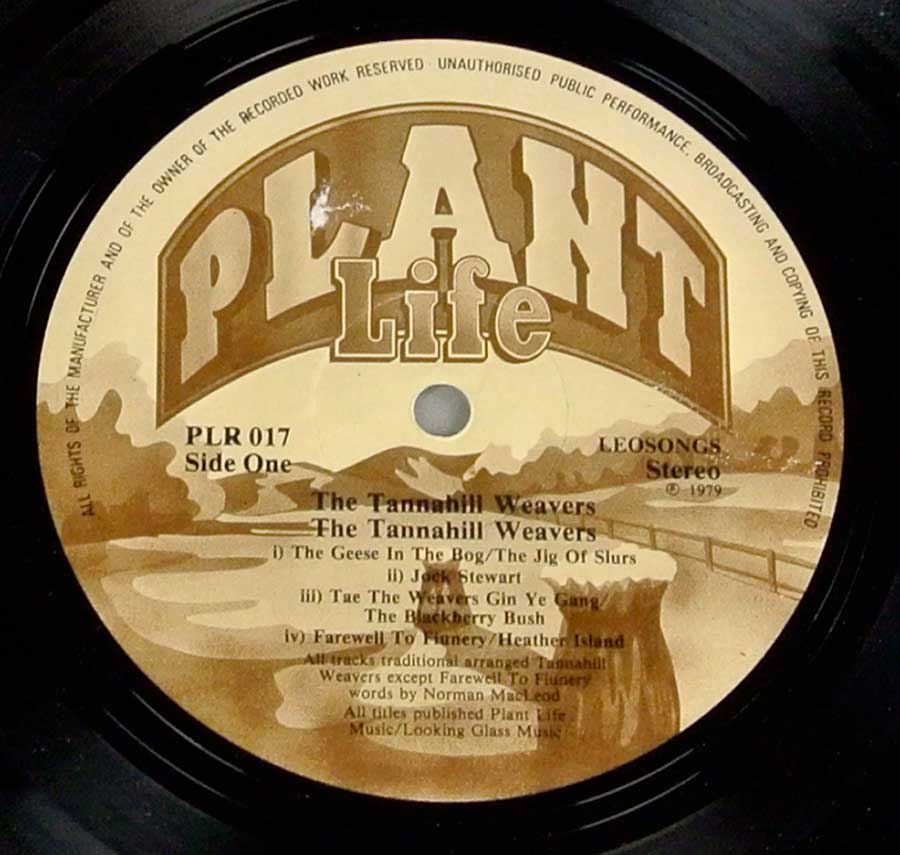In the vast landscape of folk music, certain albums emerge as trailblazers, carving a path forward while staying true to the deep roots of tradition. The Tannahill Weavers' self-titled debut LP, released in 1976, stands as one such landmark, a powerful demonstration of the band's unwavering dedication to their Scottish heritage and their adventurous spirit of musical exploration.
The mid-1970s was a vibrant period for folk music, marked by a growing interest in traditional sounds and a hunger for artists who could bridge the gap between the old and the new. The Tannahill Weavers, hailing from Paisley, Scotland, were perfectly positioned to seize this moment. Their debut album, a dynamic collection of jigs, reels, ballads, and original compositions, showcased the band's mastery and their profound understanding of their musical legacy.
The album's opening track, "The Geese in the Bog / The Jig of Slurs," sets the stage with its driving rhythm and intricate melodies. Roy Gullane's pipes and Phil Smillie's flute intertwine seamlessly, creating a sound that is both exhilarating and deeply moving. The band's tight arrangements and their infectious energy are on full display throughout the album, evident in tracks like the lively "Tae the Weavers Gin Ye Gang / The Blackberry Bush" and the poignant "Farewell to Fiunary / Heather Island."
Side Two continues this musical journey, showcasing the band's versatility with the emotive ballad "Ned of the Hills" and the spirited jigs "Willie Cummings / The Red Speckled Hen / Dalena NcKay." The album concludes with the majestic "The Marquis of Tullibardine," a fitting finale that leaves a lasting impression.
The Tannahill Weavers' ability to seamlessly blend traditional and contemporary elements is a signature of their sound, and it is evident throughout this album, particularly in their groundbreaking use of the Great Highland Bagpipe in an ensemble setting. This pioneering approach helped to reshape the landscape of Scottish traditional music, inspiring countless other bands to follow suit.
The production team, led by Robin Morton, deserves recognition for capturing the band's raw energy and their nuanced musicianship. Recorded at the legendary Temple Studios in Edinburgh, the album has a warm, intimate feel that perfectly complements the music. Morton's subtle use of reverb and his careful attention to detail allow the band's individual voices to shine through while creating a cohesive sonic landscape. The album's sound quality and production values have been lauded by fans and critics alike, contributing to its enduring appeal.
While the Tannahill Weavers' debut album was met with critical acclaim, it wasn't without its controversies. Some purists within the folk community felt that the band's incorporation of contemporary elements was a departure from tradition. However, the Tannahill Weavers remained steadfast in their belief that folk music is a living, breathing art form that must evolve to remain relevant. Their willingness to challenge the status quo and to push the boundaries of their genre helped to pave the way for countless other artists who followed in their footsteps.
In the end, the Tannahill Weavers' self-titled debut album stands as a powerful statement of the band's unwavering commitment to their craft and their deep love for their musical heritage. It is an album that continues to inspire and delight listeners, a timeless reminder of the power of music to transcend boundaries and to connect us to something larger than ourselves. Its influence on the evolution of Scottish traditional music and its enduring popularity among fans solidify its place as a pivotal release in the genre. The diverse and expertly performed tracklist, coupled with its historical context and innovative approach, ensures that this album will continue to resonate with audiences for generations to come.


